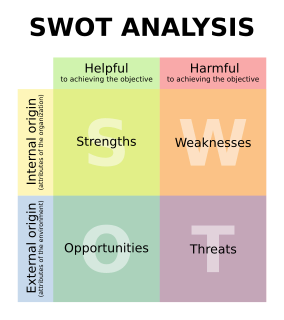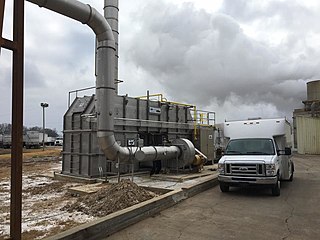
The United Nations Environment Programme (UNEP), an agency of the United Nations, coordinates the organization's environmental activities and assists developing countries in implementing environmentally sound policies and practices. It was founded by Maurice Strong, its first director, as a result of the United Nations Conference on the Human Environment in June 1972 and has overall responsibility for environmental problems among United Nations agencies; however, international talks on specialized issues, such as addressing climate change or combating desertification, are overseen by other UN organizations, like the Bonn-based Secretariat of the United Nations Framework Convention on Climate Change and the United Nations Convention to Combat Desertification. UNEP's activities cover a wide range of issues regarding the atmosphere, marine and terrestrial ecosystems, environmental governance and green economy. It has played a significant role in developing international environmental conventions, promoting environmental science and information and illustrating the way those can be implemented in conjunction with policy, working on the development and implementation of policy with national governments, regional institutions in conjunction with environmental non-governmental organizations (NGOs). UNEP has also been active in funding and implementing environment related development projects.

The International Union for Conservation of Nature is an international organization working in the field of nature conservation and sustainable use of natural resources. It is involved in data gathering and analysis, research, field projects, advocacy, and education. IUCN's mission is to "influence, encourage and assist societies throughout the world to conserve nature and to ensure that any use of natural resources is equitable and ecologically sustainable".

SWOT analysis is a strategic planning technique used to help a person or organization identify strengths, weaknesses, opportunities, and threats related to business competition or project planning. It is intended to specify the objectives of the business venture or project and identify the internal and external factors that are favorable and unfavorable to achieving those objectives. Users of a SWOT analysis often ask and answer questions to generate meaningful information for each category to make the tool useful and identify their competitive advantage. SWOT has been described as the tried-and-true tool of strategic analysis.
Formerly known as the World Commission on Environment and Development (WCED), the mission of the Brundtland Commission is to unite countries to pursue sustainable development together. The Chairperson of the Commission, Gro Harlem Brundtland, was appointed by United Nations Secretary-General Javier Pérez de Cuéllar in December 1983. At the time, the UN General Assembly realized that there was a heavy deterioration of the human environment and natural resources. To rally countries to work and pursue sustainable development together, the UN decided to establish the Brundtland Commission. Gro Harlem Brundtland was the former Prime Minister of Norway and was chosen due to her strong background in the sciences and public health. The Brundtland Commission officially dissolved in December 1987 after releasing Our Common Future, also known as the Brundtland Report, in October 1987. The document popularized the term
"Sustainable Development". Our Common Future won the University of Louisville Grawemeyer Award in 1991. The organization Center for Our Common Future was started in April 1988 to take the place of the Commission.
An environmental impact statement (EIS), under United States environmental law, is a document required by the National Environmental Policy Act (NEPA) for certain actions "significantly affecting the quality of the human environment". An EIS is a tool for decision making. It describes the positive and negative environmental effects of a proposed action, and it usually also lists one or more alternative actions that may be chosen instead of the action described in the EIS. Several U.S. state governments require that a document similar to an EIS be submitted to the state for certain actions. For example, in California, an Environmental Impact Report (EIR) must be submitted to the state for certain actions, as described in the California Environmental Quality Act (CEQA). One of the primary authors of the act is Lynton K. Caldwell.
The Commission for Environmental Cooperation was established by Canada, Mexico, and the United States to implement the North American Agreement on Environmental Cooperation (NAAEC), the environmental side accord to the North American Free Trade Agreement. The CEC's mission is to facilitate cooperation and public participation to foster conservation, protection and enhancement of the North American environment for the benefit of present and future generations, in the context of increasing economic, trade and social links among Canada, Mexico and the United States.

Environmental education (EE) refers to organized efforts to teach how natural environments function, and particularly, how human beings can manage behavior and ecosystems to live sustainably. It is a multi-disciplinary field integrating disciplines such as biology, chemistry, physics, ecology, earth science, atmospheric science, mathematics, and geography. The United Nations Educational, Scientific and Cultural Organisation (UNESCO) states that EE is vital in imparting an inherent respect for nature amongst society and in enhancing public environmental awareness. UNESCO emphasises the role of EE in safeguarding future global developments of societal quality of life (QOL), through the protection of the environment, eradication of poverty, minimization of inequalities and insurance of sustainable development. The term often implies education within the school system, from primary to post-secondary. However, it sometimes includes all efforts to educate the public and other audiences, including print materials, websites, media campaigns, etc.. There are also ways that environmental education is taught outside the traditional classroom. Aquariums, zoos, parks, and nature centers all have ways of teaching the public about the environment.

Environmental policy is the commitment of an organization or government to the laws, regulations, and other policy mechanisms concerning environmental issues. These issues generally include air and water pollution, waste management, ecosystem management, maintenance of biodiversity, the protection of natural resources, wildlife and endangered species.
Concerning environmental policy, the importance of implementation of an eco-energy-oriented policy at a global level to address the issues of global warming and climate changes should be accentuated.
Policies concerning energy or regulation of toxic substances including pesticides and many types of industrial waste are part of the topic of environmental policy. This policy can be deliberately taken to direct and oversee human activities and thereby prevent harmful effects on the biophysical environment and natural resources, as well as to make sure that changes in the environment do not have harmful effects on humans.
The Deutsche Gesellschaft für Internationale Zusammenarbeit (GIZ) GmbH or GIZ in short is a German development agency headquartered in Bonn and Eschborn that provides services in the field of international development cooperation. GIZ mainly implements technical cooperation projects of the Federal Ministry for Economic Cooperation and Development (BMZ), its main commissioning party, although it also works with the private sector and other national and supranational government organizations on a public benefit basis. In its activities GIZ seeks to follow the paradigm of sustainable development, which aims at balancing economic development with social inclusion and environmental protection. GIZ offers consulting and capacity building services in a wide range of areas, including management consulting, rural development, sustainable infrastructure, security and peace-building, social development, governance and democracy, environment and climate change, and economic development and employment.

The Korea Forest Service is charged with maintaining South Korea's forest lands. It is an independent agency specializing in forestry that is overseen by the Ministry for Food, Agriculture, Forestry and Fisheries. The current minister is Mr. Kim Jae-Hyun. The headquarters of the agency is located at the Daejeon Government Complex.

The inaugural session of the Black Sea Forum for Partnership and Dialogue (BSF) was held on June 4–6, 2006 in Bucharest. The Forum is a Romanian initiative, initially meant to hold annual presidential-level summits and thematic or sectoral-cooperation meeting during those annual intervals. The Forum is not meant to create new regional institutions, but rather to turn into a regular consultative process among countries of the extended Black Sea region and between this group of countries and international organizations such as the European Union. After the inaugural summit, no other summits were planned.
Procurement is the process of finding, acquiring, buying goods, services or works from an external source, often via a tendering or competitive bidding process. The process is used to ensure the buyer receives goods, services or works the best possible price, when aspects such as quality, quantity, time, and location are compared. Procurement is considered sustainable when organizations broadens this framework by meeting their needs for goods, services, works, and utilities in a way that achieves value for money and promotes positive outcomes not only for the organization itself but for the economy, environment, and society. This framework is also known as the triple bottom line.

The United Nations Forum on Forests (UNFF) is a high-level intergovernmental policy forum. The forum includes all United Nations Member States and Permanent Observers, the UNFF Secretariat, the Collaborative Partnership on Forests, Regional Organizations and Processes and Major Groups.
Comprehensive planning is a process that determines community goals and aspirations in terms of community development. The result is called a comprehensive plan and both expresses and regulates public policies on transportation, utilities, land use, recreation, and housing. Comprehensive plans typically encompass large geographical areas, a broad range of topics, and cover a long-term time horizon. The term comprehensive planning is most often used by urban planners in the United States.
Sustainability metrics and indices are measures of sustainability, and attempt to quantify beyond the generic concept. Though there are disagreements among those from different disciplines, these disciplines and international organizations have each offered measures or indicators of how to measure the concept.
Environmental governance is a concept in political ecology and environmental policy that advocates sustainability as the supreme consideration for managing all human activities—political, social and economic. Governance includes government, business and civil society, and emphasizes whole system management. To capture this diverse range of elements, environmental governance often employs alternative systems of governance, for example watershed-based management.
Sustainable event management is the process used to produce an event with particular concern for environmental, economic and social issues. Sustainability in event management incorporates socially and environmentally responsible decision making into the planning, organisation and implementation of, and participation in, an event. It involves including sustainable development principles and practices in all levels of event organisation, and aims to ensure that an event is hosted responsibly. It represents the total package of interventions at an event, and needs to be done in an integrated manner. Event greening should start at the inception of the project, and should involve all the key role players, such as clients, organisers, venues, sub-contractors and suppliers.
Sustainability organizations are (1) organized groups of people that aim to advance sustainability and/or (2) those actions of organizing something sustainably. Unlike many business organizations, sustainability organizations are not limited to implementing sustainability strategies which provide them with economic and cultural benefits attained through environmental responsibility. For sustainability organizations, sustainability can also be an end in itself without further justifications.
The PRECEDE–PROCEED model is a cost–benefit evaluation framework proposed in 1974 by Lawrence W. Green that can help health program planners, policy makers and other evaluators, analyze situations and design health programs efficiently. It provides a comprehensive structure for assessing health and quality of life needs, and for designing, implementing and evaluating health promotion and other public health programs to meet those needs. One purpose and guiding principle of the PRECEDE–PROCEED model is to direct initial attention to outcomes, rather than inputs. It guides planners through a process that starts with desired outcomes and then works backwards in the causal chain to identify a mix of strategies for achieving those objectives. A fundamental assumption of the model is the active participation of its intended audience — that is, that the participants ("consumers") will take an active part in defining their own problems, establishing their goals and developing their solutions.

The Republic of Kazakhstan became a member of the UN on March 2, 1992. Membership in the international organization has given Kazakhstan, in the context of globalization, the opportunity to participate fully in international cooperation and solving international problems of a political, economic, environmental, social, cultural and humanitarian character.



![Public transport shared transport[ation] service that is available for use by the general public; usually of passengers but sometimes of goods](https://upload.wikimedia.org/wikipedia/commons/thumb/0/0b/R160A_E_Train_entering_World_Trade_Center.jpg/320px-R160A_E_Train_entering_World_Trade_Center.jpg)







